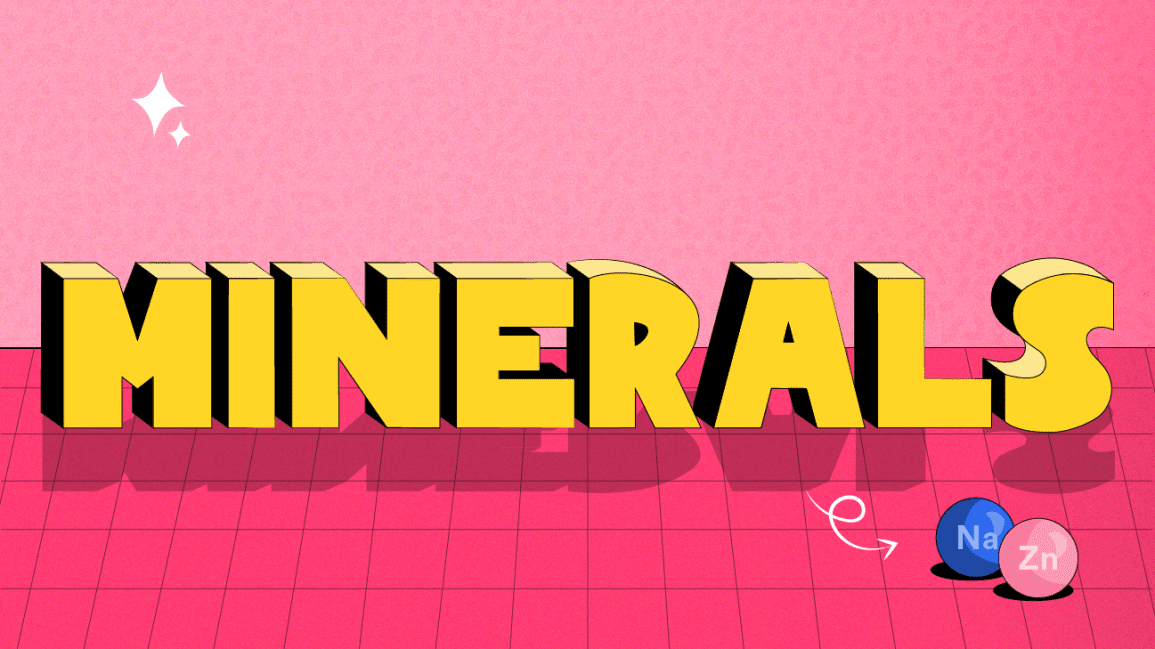What are minerals?
Minerals are inorganic solids that exist naturally and have a specific chemical composition and physical properties. They’re made up of ionic bonds that hold one or more elements together. Without minerals, the world would be a very different place than it is now. Quartz, feldspar, mica, turquoise, opal, and obsidian are some examples of minerals.
Types of minerals.
Macrominerals (elements) and microminerals (minerals) are the two main types (trace elements). Microminerals include copper, iron, zinc, and chromium, while macrominerals include silica, calcium, magnesium, sodium, and potassium. Minerals are essential in our diet because they help with structure (bones), control (electrolytes), and enzyme activity.
What is a mineral deficiency?
Mineral shortages can occur in the human body in a variety of ways. Some of these deficits can cause minor symptoms, while others can be quite significant. The most well-known shortage is iron deficiency. As a result of monthly blood loss during menstruation, women are more likely than men to develop an iron deficit. When the body does not have enough oxygen-carrying red blood cells to carry enough oxygen throughout the body, iron deficiency anemia develops.
Minerals Deficiency Symptoms
A shortage in your body can be caused by a variety of factors, and the symptoms can be subtle.
# Deficiency Symptoms: Weight loss when dieting; low energy and exhaustion; dry skin, brittle nails, and hair loss
# Vitamin B12 Deficiency Causes: There is a lack of intrinsic factors, which aids in vitamin B12 absorption from the diet. Inflammatory bowel illness or surgery can cause malabsorption. Metformin (for Type 2 diabetes) and Atazanav (for Type 1 diabetes)
Why do you need to take minerals?
Calcium is one of the most vital minerals that you require daily. In bones and teeth, calcium is one of two primary minerals. It aids in the development of strong, healthy bones and teeth. Phosphorus is the other major mineral found in bones and teeth. Minerals are necessary for the body’s proper functioning. A person’s diet must contain enough minerals, but this is not always the case. This can be caused by a variety of factors, such as getting older or having certain medical issues. Mineral supplements, in addition to what you get from food, can help prevent deficiencies and have other health benefits.
Minerals are inorganic substances that the body cannot produce.
Minerals are inorganic substances that the body can’t make on its own and must be received through food or other means. Minerals are required for a variety of human processes, including heartbeat and blood pressure regulation, bone and tooth formation, nutrition absorption, and maintaining a balanced water content and electrolyte level.
Conclusion
Minerals are necessary for human survival and the health of our planet. There would be no concrete, glass, or steel without minerals, and the world we see today would be very different. Minerals are inorganic compounds that the human body is unable to manufacture on its own. They aid in muscle contraction, blood clotting, and neuron function, as well as helping to develop healthy bones and teeth. Calcium, potassium, and magnesium are the most critical minerals for human systems.








